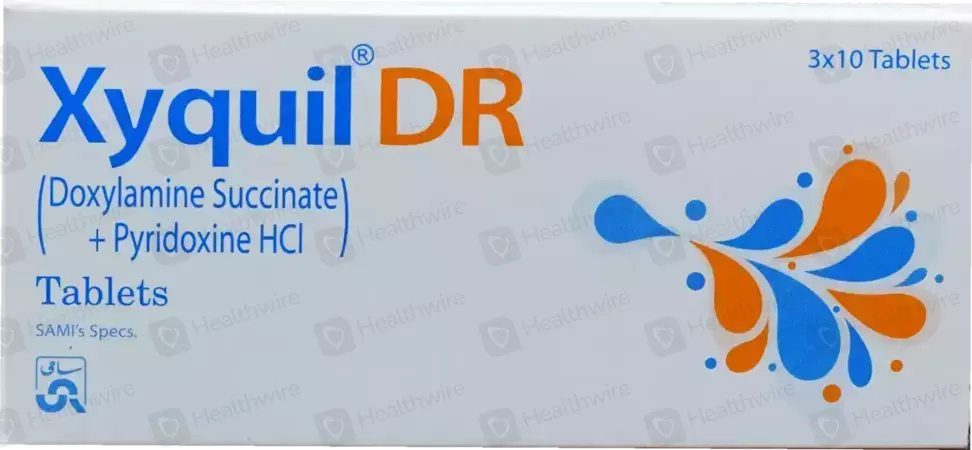Introduction Sodium chloride, commonly known as salt, is a naturally occurring compound vital for many physiological processes in the body. While best known as a table seasoning, in medical contexts it is a critical agent used in various treatments ranging from rehydration therapy to wound care and intravenous infusions. What is Sodium Chloride? Sodium chloride (NaCl) is an ionic compound made from sodium (Na⁺) and chloride (Cl⁻) ions. It is essential for maintaining fluid balance, nerve function, and muscle contractions. Medically, it is often found in solutions used for hydration, flushing, or as a carrier for other medications. How It…
-
-
Introduction Doxylamine is an antihistamine most commonly used as a short-term treatment for insomnia and as a remedy for allergy symptoms. It also plays a role in managing symptoms of the common cold and is often combined with other medications to treat nausea and vomiting in pregnancy. Known for its sedative properties, doxylamine is available in various over-the-counter and prescription forms. What is Doxylamine? Doxylamine succinate is a first-generation antihistamine belonging to the ethanolamine class. It works by blocking the action of histamine, a chemical involved in allergic reactions, and also has strong sedative effects, which makes it useful as…
-
Introduction Ketoconazole is an antifungal medication that is used to treat a variety of fungal infections. It belongs to the class of medications known as azoles, which inhibit the growth of fungi by interfering with the synthesis of ergosterol, a crucial component of the fungal cell membrane. Ketoconazole can be applied topically or taken orally, and it is available in various forms such as creams, shampoos, and tablets. It is commonly prescribed to treat conditions such as dandruff, seborrheic dermatitis, fungal skin infections, and systemic fungal infections. While ketoconazole is effective in treating fungal infections, its use must be monitored…
-
Introduction Permethrin is a synthetic chemical that belongs to the class of insecticides known as pyrethroids. It is widely used to control various types of pests, including head lice, scabies mites, and other external parasites. Permethrin is also employed in agriculture and veterinary medicine for pest control. It works by disrupting the nervous system of insects, leading to paralysis and death. Permethrin is available in both prescription and over-the-counter formulations, including creams, lotions, shampoos, and sprays. Its use is considered safe when applied according to guidelines, but it is essential to be aware of potential side effects and precautions. What…
-
Introduction Nicotine is a naturally occurring alkaloid found primarily in the tobacco plant, Nicotiana tabacum. It is the main addictive substance in tobacco products, including cigarettes, cigars, and smokeless tobacco. Beyond its recreational use, nicotine is also utilized in medical treatments to help individuals quit smoking, though it is notorious for its addictive properties. As a stimulant, nicotine acts on the nervous system and has both therapeutic and detrimental effects on health. This article provides a detailed examination of nicotine, its uses, benefits, side effects, and guidelines for its use. What is Nicotine? Nicotine is a colorless, odorless alkaloid that…
-
Introduction Polymyxin B is a broad-spectrum antibiotic that belongs to the polymyxin class. It is used primarily in the treatment of infections caused by gram-negative bacteria, including Pseudomonas aeruginosa, and is often utilized when other antibiotics fail or when the infection is resistant to more common antibiotics. Available in topical and injectable forms, Polymyxin B is considered a potent antimicrobial agent, especially when combined with other antibiotics to enhance effectiveness. What is Polymyxin B? Polymyxin B is a polymyxin antibiotic derived from Bacillus polymyxa, a soil bacterium. Unlike many other antibiotics, it is particularly effective against gram-negative bacteria due to…
-
Introduction Neomycin is a widely used antibiotic that belongs to the aminoglycoside class of medications. Known for its effectiveness against a broad range of bacteria, neomycin is commonly found in topical creams, eye drops, ear preparations, and sometimes in oral formulations. While highly effective, it must be used cautiously due to the potential for side effects, especially when used systemically. What is Neomycin? Neomycin is an aminoglycoside antibiotic derived from Streptomyces fradiae, a species of soil-dwelling bacteria. It is primarily used to treat or prevent infections caused by bacteria. It is not effective against viral or fungal infections. Neomycin is…
-
Introduction Bacitracin is a topical antibiotic widely used to prevent and treat minor skin infections. Available over-the-counter and in prescription forms, it is part of many first-aid ointments and is valued for its ability to stop bacterial growth on the skin. Bacitracin is especially useful in wound care due to its effectiveness against gram-positive bacteria and its minimal systemic absorption, making it a safe choice for most users. What is Bacitracin? Bacitracin is a polypeptide antibiotic derived from Bacillus subtilis. It is primarily used in topical formulations to treat skin infections caused by certain bacteria. Unlike broad-spectrum antibiotics, Bacitracin is…
-
Introduction Cromolyn sodium is a medication used to prevent allergic reactions and manage symptoms of various chronic conditions, such as asthma, allergic rhinitis, and mastocytosis. As a mast cell stabilizer, it works differently from antihistamines or corticosteroids, making it a unique option for individuals sensitive to these traditional treatments. Though not a quick-relief medication, it plays a vital role in long-term allergy and asthma control. What is Cromolyn Sodium? Cromolyn sodium is a synthetic compound that helps prevent allergic symptoms by stabilizing mast cells, which are immune cells that release histamines and other chemicals during allergic reactions. It is classified…
-
Introduction Phosphoric acid is a colorless, odorless, and non-volatile acid used in various industrial, food, and pharmaceutical applications. Also known as orthophosphoric acid, this compound plays a vital role in modern manufacturing and health-related fields. While it is commonly used in fertilizers and detergents, it is also present in soft drinks, dental products, and even certain medications. Understanding how phosphoric acid works, its uses, benefits, and potential risks can help in making informed decisions regarding its application. What is Phosphoric Acid? Phosphoric acid (H₃PO₄) is an inorganic mineral acid composed of three hydrogen atoms, one phosphorus atom, and four oxygen…









